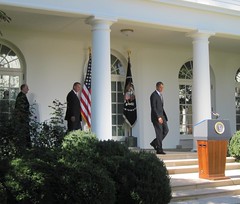The governments of India and several other countries are demanding that Telecommunications Company and maker of the Blackberry mobile, Research In Motion, address security concerns. “If they don’t follow our guidelines, we will have no option but to ask them to stop their operations in India,” the Press Trust of India (PTI) quoted an unidentified government official as saying.
The Blackberry smartphone uses high encryption technology that Indian security forces are unable to intercept and decipher. Other governments that have recently expressed security concerns are Saudi Arabia, the UAE, Indonesia, Lebanon, Algeria and Germany. Saudi Arabia has ordered its phone operators to halt Blackberry services while the UAE plan to ban the services starting from October. France cautioned officials against using the service back in 2007.
Bans in both Saudi Arabia and the UAE means that domestic and International roaming travellers will not have access to Blackberry services.
The Canadian company has more than 41 million users world-wide, the percentage of those in the primary middle-eastern countries threatening to ban the use of Blackberry technology is less than 3 percent. There are around 700,000 Blackberry users in Saudi Arabia and some 500,000 in the UAE.
Government Compliance Vs Customer Privacy
RIM finds itself in a difficult situation: in order to do business in these countries who demand access to customer data, RIM will have to make a compromise with them or even cave completely to their demands. By capitulating to these governments however, RIM risks alienating its customers who value their privacy, especially its enterprise customers who fear having their confidential business transmissions read by governments.
While India is the latest country to express concerns that the encrypted Blackberry services will help facilitate terrorism, the battle between governments and communications companies over access to data has occurred over decades. In the 1980s, the US government unsuccessfully pushed for backdoor encryption keys and access to computer data. In 1994, the US passed CALEA (Communications Assistance for Law Enforcement Act) that allowed phone and electronic communications monitoring under certain circumstances, particularly in cases where national security is threatened. This was extended in 2005 to include Internet and VoIP phone systems.
Australia Settled This 20 years Ago, Until the War On Terror
Australia had a similar debate during the 1990s about the potential for encryption to thwart government from legitimately accessing communications and other data. The Australian government concluded at the time that they were powerless to intercept encrypted data. In 2004, The Australian Parliament approved the Surveillance Devices Bill (No. 2) 2004 and Telecommunications (Interception) Amendment (Stored Communications) Bill 2004, allowing easy access to emails, SMSs and voicemail by police. The spyware law authorises police to install spyware on user’s computers for offenses that carry penalties of 3 years, less than is required for a wiretap.
A Parliamentary Committee report cited a calculation that by comparison with the US for 2003-04, Australia issued 75% more warrants than the total number of US wiretap warrants, and that this represented 26 times the rate on a per capital basis.
Where There is a Will, There is a Way (to undermine surveillance)
Despite RIMs Blackberry service being the target of governments worried about terrorists being able to circumvent having their communications monitored, there is plenty of third party software available to encrypt data so that not even the government can intercept communications. A free app for Google’s mobile phone platform Andriod was recently released called RedPhone, a voice over Internet protocol (VoIP) program that encrypts phone calls, and TextSecure, an app for sending and receiving encrypted text messages and scrambling the messages stored in their inbox.
It would seem that despite any governments best efforts, those individuals who are knowledgeable of Internet security will get find a way around attempts to eavesdrop on their private conversations. The recent demand from these governments to be able to intercept and read Blackberry communications for the sake of national security sends the message that businesses cannot expect a right to privacy as communications providers are progressively forced into the unenviable position of choosing between customer privacy and legal compliance with regard to police and secret service surveillance.
Encryption is Legal Here and We Can Help
If the security of your business communications matters to you, getting the best data security advice is critical. There is also the task of navigating the balance between security and legal compliance. AWD can ensure that your business data is secure from all threats. For the best in data security services and consultation, contact an AWD security specialist today.AWD provide mobile and Internet security consultation and solutions for businesses in Australia.
Contact AWD for all your Internet security and network security needs.
AWD provide mobile and Internet security consultation and solutions for businesses in Australia.
Contact AWD for all your Internet security and network security needs.
Article from articlesbase.com
Find More National Security Articles


